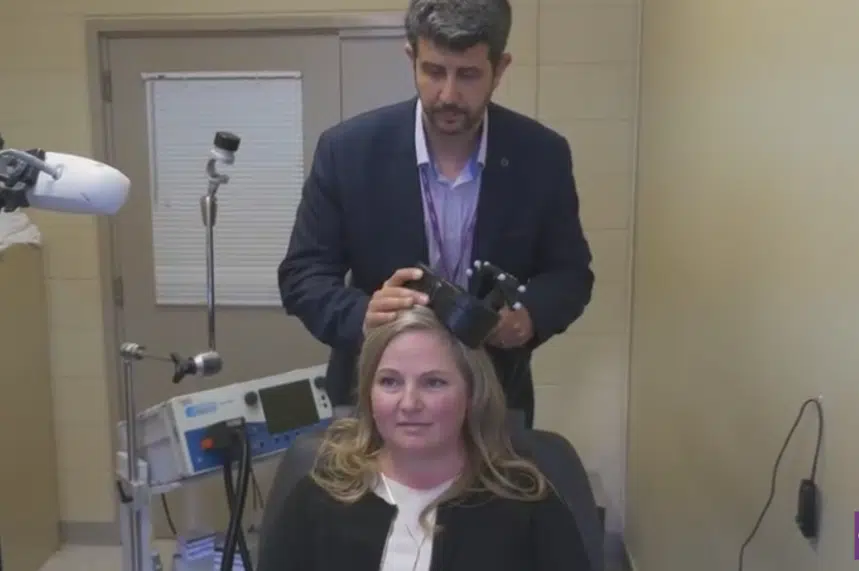A Canadian study on a traditional brain stimulation method for hard to treat depression has found a more time efficient version.
The study, which was published in The Lancet medical journal, was co-authored by Dr Daniel Blumberger based at Toronto’s Centre for Addiction and Mental Health (CAMH).
“This works very differently and a new potential treatment that offers hope for people struggling with current methods,” Blumberger told 650 CKOM’s, John Gormley.
He said the traditional repetitive transcranial magnetic stimulation treatment for depression usually takes about 40 minutes to complete, but his team discovered using the brains natural language it could be cut to around three minutes.
According to Blumberger, intermittent theta burst stimulation is more efficient and can help more people, especially those that don’t respond well to medication or talk therapy.
“In Canada, that number amounts to around 600,000 people,” he said.
Between September 2013 and October 2016 more than 400 people were part of the study, about half had the new shorter treatment.
While participants said the three-minute treatment was slightly more painful, it was tolerable with the most common side effect being headaches for both groups.
According to Blumberger, the treatment is only covered in two provinces Saskatchewan and Quebec.







